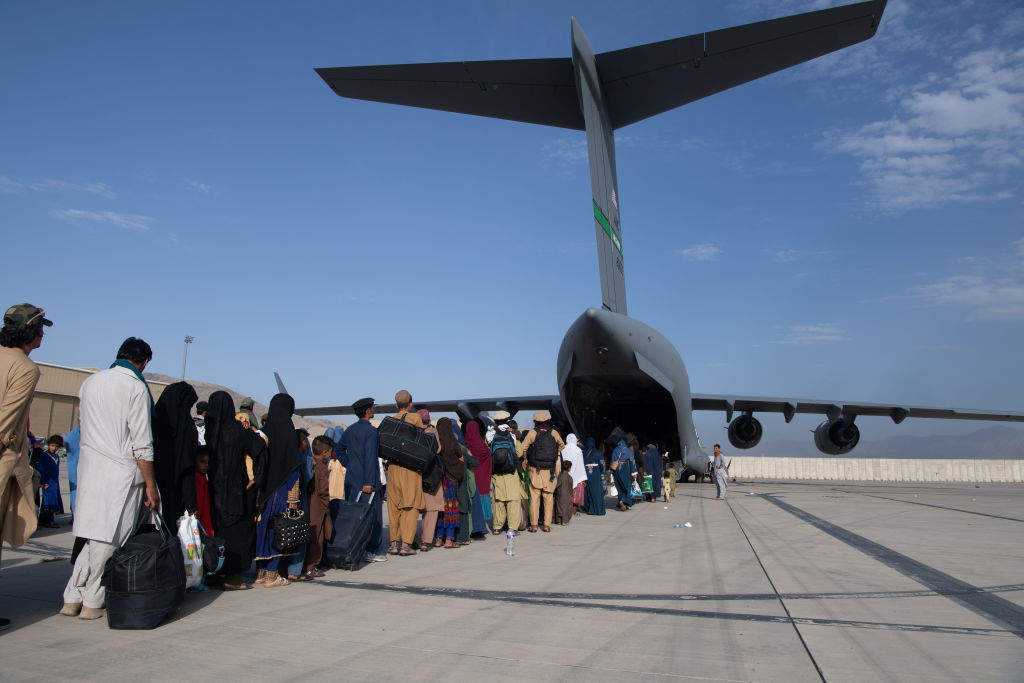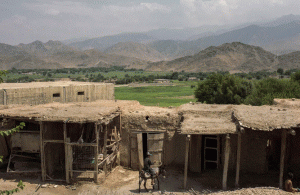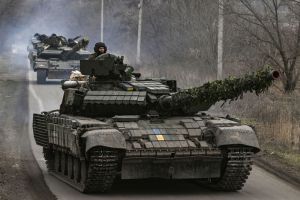There’s a disgusting scene I can’t stop thinking about. It comes about midway through This Is What Winning Looks Like, a 2013 VICE documentary about America’s efforts in Afghanistan you can watch for free on YouTube. The film switches between the documentary footage itself and a sort of metafilm in which the filmmaker, Ben Anderson, discusses aspects of his work with Eddy Moretti of VICE, with Anderson’s footage from his time overseas frozen on a computer monitor behind them.
The scene in question starts at 51:00 in the YouTube cut, was filmed around 2012, and involves a series of horrific murders. These were perpetrated not by the Taliban, but by America’s supposed allies: the country’s nascent police force. Police commanders had a habit of kidnapping young boys aged 13 or 14 and using them both as servants and sex slaves. Three of these ‘chai boys’ had been shot dead — two by police and the third, possibly, by another chai boy. A fourth was shot in the leg for trying to escape.
It falls on Maj. Bill Steuber, the Platonic ideal of the square-jawed, no-nonsense US military man, to meet with the local acting police chief and get this situation under control. The chief is named Qhattab Khan, and there is, well, a bit of a culture gap. There’s no coy way to say this: Khan is finding it very hard to understand why it is inappropriate to have sex with a 13-year-old. ‘If they don’t fuck the asses of those boys, what should they fuck?’ he says to Steuber through an interpreter. ‘The pussies of their own grandmothers? Their asses were used before, and now they want to get what they are owed.’ His attitude is one of exasperation — not with his men for raping children, but with Steuben for bugging him about this inconsequential problem.
The scene reveals, in eye-popping detail, how superficial so much coverage of the now-officially-failed war in Afghanistan has been. There was a bunch of happy talk about saving Afghanistan from the Taliban, and there was the reality, which was much different and more complicated. Not just the child abuse, but a fundamentally confusing, deeply pathological situation. It was always unclear exactly who our allies were, and whether Afghanistan’s mostly rural population wanted the help of multinational occupiers. International dollars flowed endlessly into unfathomably corrupt situations. Steuber compares the ‘vast’ corruption to The Sopranos, and says it included ‘everything from skimming ammunition off their supplies to skimming fuel off their shipments’.
A great deal of the coverage of the final American withdrawal treats the war as though it started two weeks ago rather than 20 years ago. Yes, elements of the pullout appear to have been terribly mismanaged. ‘Majority of Interpreters, Other US Visa Applicants Were Left Behind in Afghanistan’, runs a Wall Street Journal headline. Americans shared that fate as well. That’s terrible. I hope the Biden administration’s errors are duly uncovered and reported for all the world to see.
But there’s something deeply opportunistic going on right now. Hawkish figures who lied to us about the war — or at least sold us a delusional optimism that slapped a coat of shiny PR-paint on a profoundly ugly reality — now pretend that really, it’s this last part of the story that matters most. I can understand why they sense the opportunity: we had been ignoring Afghanistan for a long time. According to one analysis, CBS, NBC and ABC devoted a grand total of five minutes of total national evening-news coverage to the war in the year prior to the US’s ignominious departure.
Now, all of a sudden, there’s an easy, simple, polarizing storyline: look how we flubbed our departure! What in the hell was the Biden administration thinking? If you’re the type who thinks we should have had a bigger, bolder presence in Afghanistan, it’s your moment to scurry into the spotlight and highlight our lack of Willpower and Discipline and Leadership.
Nothing we did in Afghanistan really worked. We were able to carve out pockets of success and safety here and there, but there’s no way to avoid the conclusion that not one but three presidential administrations presided over failure after failure, often flat-out lying to the public about the situation on the ground. They could point to encouraging-looking maps that, by dint of their zoomed-out nature, obscured the reality: bottomless corruption, rampant drug abuse among the national police (another theme of Anderson’s excellent documentary) and the aforementioned pedophilia problem. As the Times noted in a blockbuster 2015 article, ‘American soldiers and Marines have been instructed not to intervene — in some cases, not even when their Afghan allies have abused boys on military bases, according to interviews and court records.’ Talk about moral decay. Talk about the diminution of American greatness.
I hope there’s more hardheaded, skeptical journalism like Anderson’s in the months and years to come. Those defending this war and attempting to distract us from their failures by casting a spotlight on the admittedly terrible scenes from Hamid Karzai International Airport should be forced to lay out exactly what we could have accomplished in Afghanistan, or why all those years and all those trillions only produced an easily toppled cardboard cutout of stability. ‘Things were going OK-ish in Afghanistan, and then Biden screwed it all up’ is a convenient, pat storyline. The media should resist it and ask some tough questions instead.
This article was originally published in The Spectator’s October 2021 World edition.


















